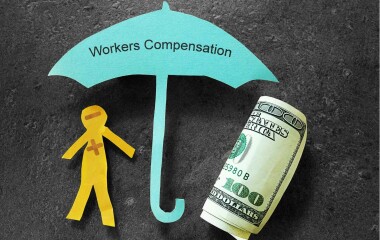An occupational injury refers to physical harm or illness that occurs in the course of performing work duties or in direct connection therewith. Employment in the healthcare sector involves a higher degree of risk. Healthcare professionals are exposed daily to patients, sharp instruments, chemical substances, and heavy equipment. Injuries may result not only from inattention, but also due to unsuitable working conditions or improper use of equipment.
The Most Common Types of Occupational Injuries in Healthcare
What are the most common types of workplace injuries in healthcare?
Injuries from sharp objects
Healthcare workers are at risk of injuries from needles, scalpels, and other sharp tools. These injuries can lead to the transmission of dangerous infections, including HIV and hepatitis. Many such incidents occur each year, with a large number going unreported.
Musculoskeletal injuries
Handling patients, prolonged standing, and repetitive movements lead to a high incidence of back pain, neck pain, and other musculoskeletal problems. Frequent patient lifting, working in awkward positions, and lack of rest contribute to the overloading of muscles and joints. Nurses and other healthcare workers are among the professions with the highest risk of musculoskeletal damage (even fractures).
Workplace violence
Verbal and physical assaults by patients or their relatives are a growing concern. Frontline healthcare workers, especially in emergency departments and psychiatric units, face an increased risk of assault.
Exposure to hazardous substances
Working with chemicals such as chemotherapeutic agents or disinfectants can have long-term negative health effects. Contact with infectious diseases also poses a major risk, as clearly demonstrated during the COVID-19 pandemic (recognized as an occupational disease, although its origin was often difficult to prove).
Slips and falls
Falls are among the most common workplace injuries in healthcare. Wet floors, obstacles in hallways, or fast movements between patients can lead to accidents. When working under pressure or in demanding conditions, the risk of falling increases significantly — and the consequences can be serious.
Legal Protection for Healthcare Workers
In the Czech Republic, occupational safety and health are regulated by the Labour Code and related legislation. Employers are required to regularly assess workplace risks and implement measures to minimize them. They must also provide protective equipment and ensure occupational safety training. This includes keeping records of work-related injuries. These rules are in place to ensure your working environment is as safe as possible.
Entitlement to Compensation
Healthcare workers who suffer a workplace injury are entitled to compensation for lost wages during sick leave. They can also claim compensation for pain and reduced quality of life. Additionally, they have the right to reimbursement of medical treatment costs. In the case of a serious injury that results in permanent consequences, workers are entitled to long-term compensation for lost earnings — even after returning to work.
Preventing Workplace Injuries in Healthcare
Organizational measures
Well-established rules help you work more safely. Your workplace should clearly define what to do and how to act to prevent injury. Adequate staffing during shifts and a well-organized environment are essential. Tools for patient handling, such as needleless systems, can make your work easier while also protecting you. Don’t forget regular training — it teaches you how to work safely and what to watch for to avoid risks.
Education and training
To work safely, you need to be well-prepared. Take part in regular training sessions where you’ll learn proper work procedures. These sessions will also help you develop skills for dealing with aggressive patient behavior. Training ensures that you understand potential risks — and most importantly, how to prevent them effectively.
Systemic support
Systemic support is important for your well-being. You should have access to programs that support both your physical and mental health. Incident reporting should be easy and without fear of repercussions. The causes of injuries should be regularly evaluated, and corrective measures implemented accordingly.
What to Do in Case of a Workplace Injury
If you are injured at work, it’s important to act quickly. First, immediately report the incident to your supervisor to ensure it is properly documented. Then, seek medical attention. Even minor injuries can have long-term consequences, so it's important to be examined. Next, fill out a workplace injury report — this is necessary for any compensation claims. If there are witnesses, collect their statements — these may be important in clarifying the circumstances of the injury. Also, contact a trade union or a lawyer — they can assist you with the next steps. Finally, don’t forget to file your compensation claim. It’s essential to receive fair compensation for your injury.
Contact Employee Rights
📞 Phone: +420 773 014 007
📧 Email: info@pravozamestnance.cz
🏢 Contact form available on the website
Social media: Instagram, Facebook or LinkedIn
We protect and enforce employee rights. We strive to improve working conditions for employees in the Czech Republic. We also support you in dealing with workplace injuries. For news, advice, and tips regarding employee rights, we recommend checking our blog section or following us on Instagram, Facebook or LinkedIn. Thank you.





